- Jurors earn $15 a day for month to hear the multibillion-dollar case
- Famous Jacksons, including Janet, will sit just feet from jurors in a tiny courtroom
- Only a handful of journalists and members of the public will be allowed inside
- Michael Jackson's mom and kids argue a concert promoter is liable in his death
Los Angeles (CNN) -- The Michael Jackson wrongful death trial, which promises dramatic revelations and legal fireworks, begins in a small Los Angeles courtroom with opening statements Monday.
Jurors earning $15 a day will listen to several months of testimony before deciding whether one of the world's largest entertainment companies should pay Jackson's mother and three children billions of dollars for its liability in the pop icon's death.
Famous Jackson family members, including Janet, will sit just a few feet from the jury as Michael's oldest son and daughter describe their father's last days. But they will also endure weeks of tedious testimony from medical and financial experts offering opinions about the singer's health, addiction and career.
Only a handful of journalists and a few members of the public will be allowed inside the courtroom because many of its 45 seats are reserved for parties involved in the trial, including the Jackson family. Los Angeles County Superior Court Judge Yvette Palazuelos denied CNN's request to televise the trial.
Pretrial hearings have featured angry and personal exchanges between lawyers for the two sides, made more intense by the intimacy of the tiny courtroom.
 Allred: Murray could be subpoenaed
Allred: Murray could be subpoenaed
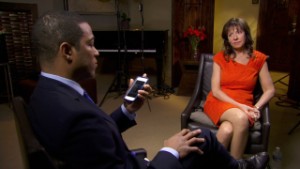 Conrad Murray claims innocence on phone
Conrad Murray claims innocence on phone
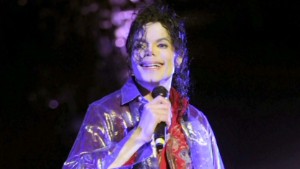 How Michael Jackson's death unfolded
How Michael Jackson's death unfolded
Jurors chosen to decide Michael Jackson wrongful death case
The central issue
The central issue is simple: Did AEG Live, the company promoting Jackson's comeback concerts in 2009, hire or supervise Dr. Conrad Murray, the physician convicted of involuntary manslaughter in Jackson's June 25, 2009, death?
Jackson died two weeks before his "This Is It" comeback concerts, organized by AEG Live, were to have debuted in London. The coroner ruled Jackson died from a fatal combination of sedatives and propofol, a surgical anesthetic that Murray told investigators he used to put Jackson to sleep almost every night in the month before his death.
The Jacksons will argue that AEG executives knew about the star's weakened health and his past use of dangerous drugs while on tour. They're liable in his death because they pressured Jackson and the doctor to meet their ambitious schedule to prepare for the London shows despite that knowledge, their lawyers contend.
A cornerstone of their case is an e-mail AEG Live Co-CEO Paul Gongaware wrote 11 days before Jackson's death. The e-mail to show director Kenny Ortega addressed concerns that Murray had kept Jackson from a rehearsal the day before: "We want to remind (Murray) that it is AEG, not MJ, who is paying his salary. We want to remind him what is expected of him."
Jackson lawyers argue the e-mail is evidence that AEG Live used Murray's fear of losing his lucrative job as Jackson's personal physician to pressure him to have Jackson ready for rehearsals despite his fragile health.
AEG will defend itself by arguing that Jackson was responsible for his own demise, that he chose Murray to be his full-time doctor and that his drug addiction led him to a series of fatal choices. Murray was never an AEG employee but rather was chosen and paid by Jackson for nearly four years until Jackson died, AEG lawyers contend.
"I don't know how you can't look to Mr. Jackson's responsibility there," AEG lawyer Marvin Putnam told CNN. "He was a grown man."
Child molestation accusations against Jackson, for which he was acquitted after a trial, are relevant because they "resulted in an incredible increase in his drug intake," Putnam said.
"Mr. Jackson is a person who was known to doctor shop," Putnam said. "He was known to be someone who would tell one doctor one thing and another doctor something else."
When Palazuelos ruled in February that case warranted a jury trial, she found there was evidence to support the Jacksons' claim that AEG Live executives could have foreseen that Murray would use dangerous drugs in treating the singer.
Elvis' ghost haunts Michael Jackson death trial
Jackson's family seeks billions
The lawsuit seeks a judgment against AEG Live equal to the money Jackson would have earned over the course of his remaining lifetime if he had not died in 2009. Jackson lawyers denied media reports that they were seeking $40 billion in damages if AEG Live is found liable, but it could cost the company several billion dollars, according to estimates of Jackson's income potential.
AEG Live is a subsidiary of AEG, a global entertainment company that was up for sale recently with an $8 billion asking price.
One of the Jacksons' experts, certified pubic accountant Arthur Erk, estimated that Michael Jackson could have earned $1.4 billion by taking his "This Is It" tour around the world for 260 shows. AEG executives discussed extending the tour beyond the 50 shows scheduled for London, Jackson lawyers said.
Jackson lawyer Perry Sanders, in arguing for the judge to allow Erk's testimony, said when "This Is It" tickets went on sale in March 2009, there was the "highest demand to see anyone in the history of the world. No one has ever come close."
"There was so much demand, they filled 2 million seats in hours," Sanders said, quoting an e-mail from AEG Live CEO Randy Phillips sent to AEG's owner.
"We would have had to do 100-plus shows to fill the demand" in London, he said Phillips wrote. Jackson could have packed the Tokyo Dome several times in a world tour, he said.
But AEG lawyer Sabrina Strong called it "very speculative" that Jackson would have even finished the 50 London shows before dying.
AEG lawyers argued that Jackson didn't perform 260 shows and make that much money even in his prime. "He never came anywhere close to that," Strong said. "No one other than Cher has ever done that."
Erk also calculated Jackson would have followed with four more world tours before he turned 65.
Palazuelos weighed in during a hearing on Thursday, noting that the Rolling Stones are still touring into their 70s.
The Jacksons will also try to convince jurors that he would have made a fortune off of a long series of Las Vegas shows, endorsements, a clothing line and movies.
Strong argued that Jackson had a history of failed projects and missed opportunities, calling Erk's projections "a hope, a dream, and not a basis for damages."
If AEG is found liable, the company's lawyers want the judge to tell the jury to reduce any damages by the amount Jackson's estate earned from the documentary made from video the company shot of his rehearsals. "If there is a benefit in it, then that is deducted from a loss," Strong said.
Jackson lawyer Brian Panish compared giving AEG credit for the "This Is It" profits to being "like you murdered someone, wrote a book about them and gave them the money."
Panish, who will deliver the Jacksons' opening statement Monday morning, said he was not sure who his first witness will be Tuesday morning. He did tell the court he will show several videos of the depositions given by AEG's top executives in the first week.
Panish and AEG's Putnam will each have two and a half hours to describe their cases to the jury in opening statements starting at 10 a.m. Monday.
The witness lists include many members of the Jackson family, including matriarch Katherine Jackson. Other celebrity witnesses on the list are Sharon Osbourne, Quincy Jones, Spike Lee, Ray Parker Jr., Lisa Marie Presley, Diana Ross and Lou Ferrigno.
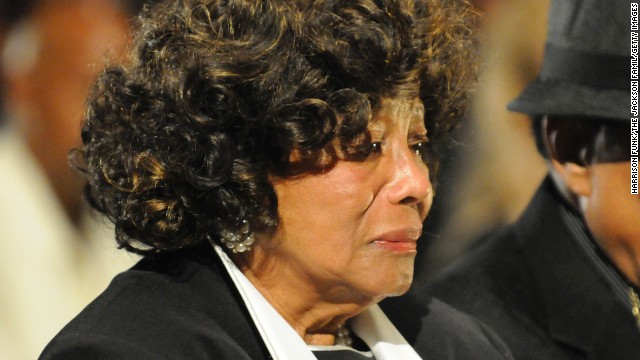 Katherine Jackson: Michael's mother, 82, was deposed for nine hours over three days by AEG Live lawyers. As the guardian of her son's three children, she is a plaintiff in the wrongful death lawsuit against the company that promoted Michael Jackson's comeback concerts.
Katherine Jackson: Michael's mother, 82, was deposed for nine hours over three days by AEG Live lawyers. As the guardian of her son's three children, she is a plaintiff in the wrongful death lawsuit against the company that promoted Michael Jackson's comeback concerts.
 Prince Jackson: Michael's oldest son is considered a key witness in the Jacksons' case against AEG Live, since he is expected to testify about what his father told him about the concert promoter in the last days of his life. Prince, who turned 16 in February, is becoming more independent -- he now has a driver's license and jobs.
Prince Jackson: Michael's oldest son is considered a key witness in the Jacksons' case against AEG Live, since he is expected to testify about what his father told him about the concert promoter in the last days of his life. Prince, who turned 16 in February, is becoming more independent -- he now has a driver's license and jobs.
 Paris Jackson: Michael's daughter, who turns 15 on April 3, is on the list of witnesses and was questioned by AEG Live lawyers for several hours on March 21 about her father's death. Paris is an outspoken teen who often posts messages to her 1 million-plus Twitter followers.
Paris Jackson: Michael's daughter, who turns 15 on April 3, is on the list of witnesses and was questioned by AEG Live lawyers for several hours on March 21 about her father's death. Paris is an outspoken teen who often posts messages to her 1 million-plus Twitter followers.
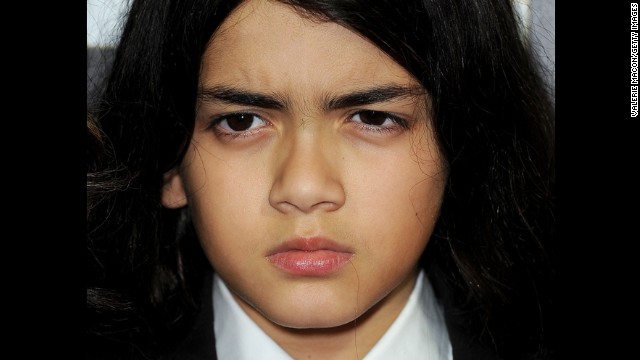 Blanket Jackson: Although AEG Live asked the judge to order Blanket, 11, to sit for a deposition, and he is one of the four plaintiffs suing them, Michael's youngest son will not be a witness in the trial. His doctor submitted a note to the court saying it would be "medically detrimental" to the child.
Blanket Jackson: Although AEG Live asked the judge to order Blanket, 11, to sit for a deposition, and he is one of the four plaintiffs suing them, Michael's youngest son will not be a witness in the trial. His doctor submitted a note to the court saying it would be "medically detrimental" to the child.
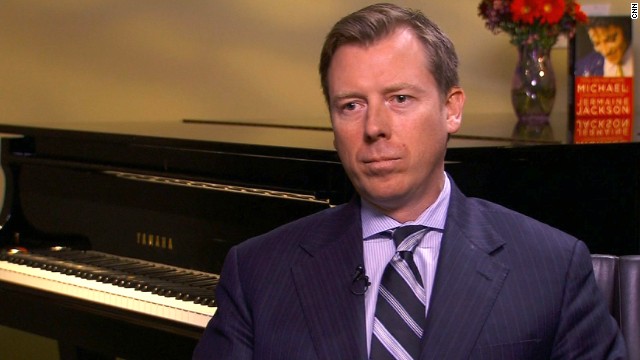 Kevin Boyle: The Los Angeles personal injury lawyer is leading the Jackson team of at least six attorneys in the wrongful death suit against AEG Live. One of his notable cases was a large settlement with Boeing on behalf of two soldiers injured when their helicopter malfunctioned and crashed in Iraq.
Kevin Boyle: The Los Angeles personal injury lawyer is leading the Jackson team of at least six attorneys in the wrongful death suit against AEG Live. One of his notable cases was a large settlement with Boeing on behalf of two soldiers injured when their helicopter malfunctioned and crashed in Iraq.
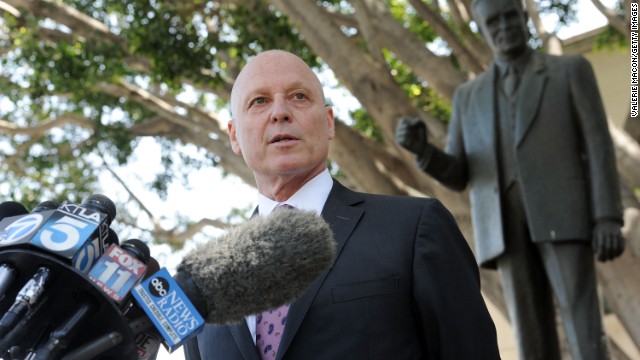 Perry Sanders, Jr.: Katherine Jackson's personal lawyer is helping steer the Jackson matriarch through her relations with her son's estate, probate court and the wrongful death suit. He is also known for representing the family of Biggie Smalls in their suit against the city of Los Angeles over the rapper's death investigation.
Perry Sanders, Jr.: Katherine Jackson's personal lawyer is helping steer the Jackson matriarch through her relations with her son's estate, probate court and the wrongful death suit. He is also known for representing the family of Biggie Smalls in their suit against the city of Los Angeles over the rapper's death investigation.
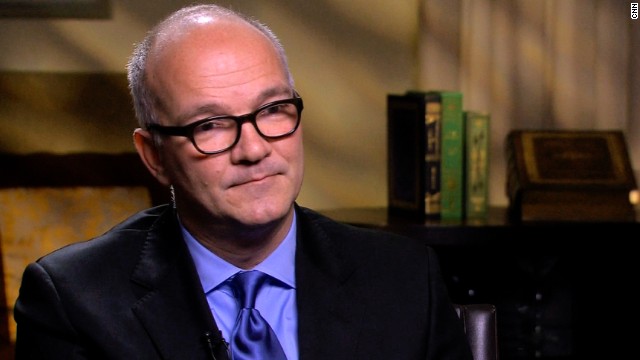 Marvin Putnam: He's the lead lawyer for AEG Live, defending against the wrongful death suit. The primary focus of his legal practice is "media in defense of their First Amendment rights," according to his official biography.
Marvin Putnam: He's the lead lawyer for AEG Live, defending against the wrongful death suit. The primary focus of his legal practice is "media in defense of their First Amendment rights," according to his official biography.
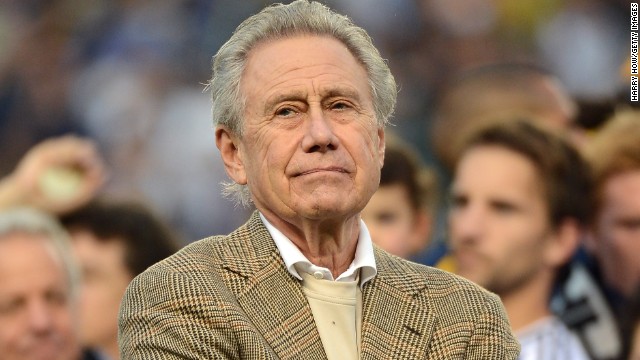 Philip Anschutz: The billionaire owner of AEG, parent company of AEG Live, is on the Jacksons' witness list. He is the force behind the effort to build a football stadium in downtown Los Angeles to lure a National Football League team to the city. He recently pulled his company off the market after trying to sell it for $8 billion.
Philip Anschutz: The billionaire owner of AEG, parent company of AEG Live, is on the Jacksons' witness list. He is the force behind the effort to build a football stadium in downtown Los Angeles to lure a National Football League team to the city. He recently pulled his company off the market after trying to sell it for $8 billion.
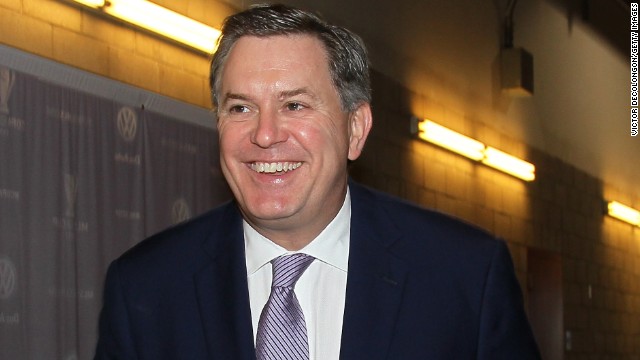 Tim Leiweke: He was recently fired as AEG's president as Philip Anschutz announced he was taking a more active role in the company. The Jackson lawyers say Leiweke's e-mail exchanges with executives under him concerning Michael Jackson's health are important evidence in their case.
Tim Leiweke: He was recently fired as AEG's president as Philip Anschutz announced he was taking a more active role in the company. The Jackson lawyers say Leiweke's e-mail exchanges with executives under him concerning Michael Jackson's health are important evidence in their case.
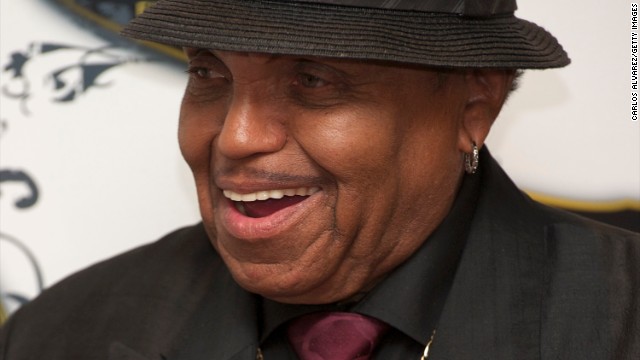 Joe Jackson: Michael's father, 84, is on the witness list for the trial and may testify. The Jackson family patriarch, who lives in Las Vegas separately from his wife, has suffered several ministrokes in the last year, which some close to him say have affected him.
Joe Jackson: Michael's father, 84, is on the witness list for the trial and may testify. The Jackson family patriarch, who lives in Las Vegas separately from his wife, has suffered several ministrokes in the last year, which some close to him say have affected him.
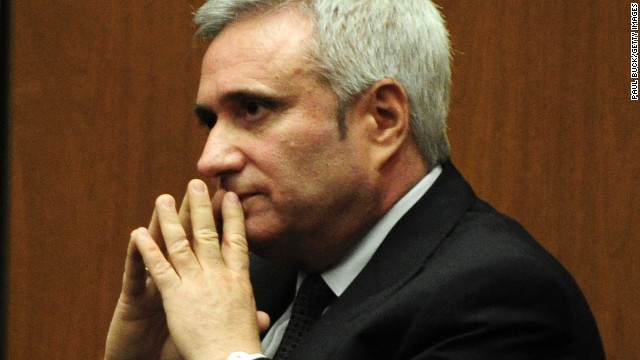 Randy Phillips: He's president of AEG Live, the concert promoter that contracted with Michael Jackson for his "This Is It" comeback shows set to start in London in July 2009. The Jackson lawsuit says Phillips supervised Dr. Conrad Murray's treatment of Jackson in the weeks before his death, making the company liable for damages. E-mails between Phillips and other executives showed they were worried about Jackson's missed rehearsals and sought Murray's help getting him ready.
Randy Phillips: He's president of AEG Live, the concert promoter that contracted with Michael Jackson for his "This Is It" comeback shows set to start in London in July 2009. The Jackson lawsuit says Phillips supervised Dr. Conrad Murray's treatment of Jackson in the weeks before his death, making the company liable for damages. E-mails between Phillips and other executives showed they were worried about Jackson's missed rehearsals and sought Murray's help getting him ready.
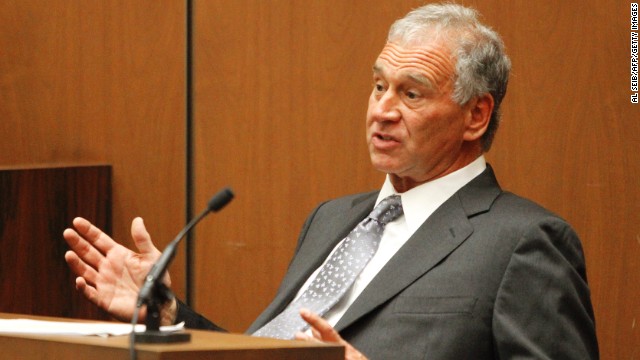 Paul Gongaware: The AEG Live co-CEO worked closely with Michael Jackson as he prepared for his comeback concerts. He testified at Dr. Conrad Murray's criminal trial that he contacted the physician and negotiated his hiring at the request of Jackson. AEG lawyers say it was Jackson who chose, hired and supervised Murray. Gongaware knew Jackson well, having been tour manager for the singer in previous years.
Paul Gongaware: The AEG Live co-CEO worked closely with Michael Jackson as he prepared for his comeback concerts. He testified at Dr. Conrad Murray's criminal trial that he contacted the physician and negotiated his hiring at the request of Jackson. AEG lawyers say it was Jackson who chose, hired and supervised Murray. Gongaware knew Jackson well, having been tour manager for the singer in previous years.
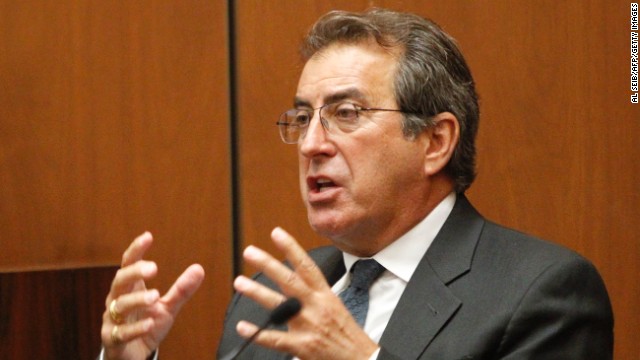 Kenny Ortega: He was chosen by Michael Jackson and AEG Live to direct and choreograph the "This Is It" shows. Ortega, who choreographed for Jackson's "Dangerous" and "HIStory" tours, testified at Dr. Conrad Murray's criminal trial that "Jackson was frail" at a rehearsal days before his death.
Kenny Ortega: He was chosen by Michael Jackson and AEG Live to direct and choreograph the "This Is It" shows. Ortega, who choreographed for Jackson's "Dangerous" and "HIStory" tours, testified at Dr. Conrad Murray's criminal trial that "Jackson was frail" at a rehearsal days before his death.
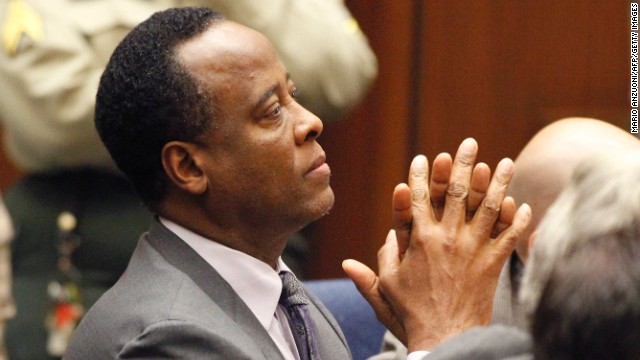 Dr. Conrad Murray: He was Michael Jackson's personal physician in the two months before his death, giving him nightly infusions of the surgical anesthetic that the coroner ruled led to his death. Murray, who is appealing his involuntary manslaughter conviction, has sworn that he would invoke his Fifth Amendment protection from self-incrimination and refused to testify in the civil trial. There is a chance that Murray will be brought into court from jail to testify outside the presence of the jury to allow the judge to determine if he would be ordered to testify.
Dr. Conrad Murray: He was Michael Jackson's personal physician in the two months before his death, giving him nightly infusions of the surgical anesthetic that the coroner ruled led to his death. Murray, who is appealing his involuntary manslaughter conviction, has sworn that he would invoke his Fifth Amendment protection from self-incrimination and refused to testify in the civil trial. There is a chance that Murray will be brought into court from jail to testify outside the presence of the jury to allow the judge to determine if he would be ordered to testify.
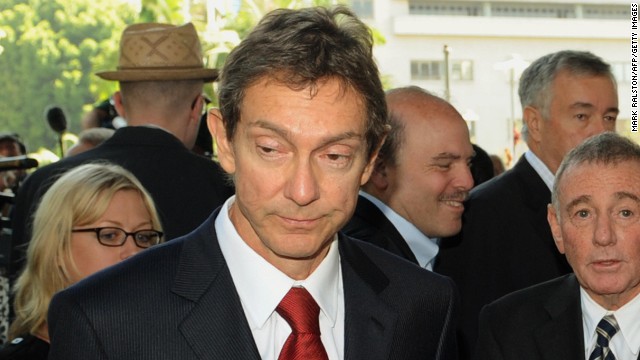 John Branca: He's one of two executors of Michael Jackson's estate. Branca was Jackson's lawyer until about seven years before his death. He said Jackson rehired him just weeks before he died.
John Branca: He's one of two executors of Michael Jackson's estate. Branca was Jackson's lawyer until about seven years before his death. He said Jackson rehired him just weeks before he died.














